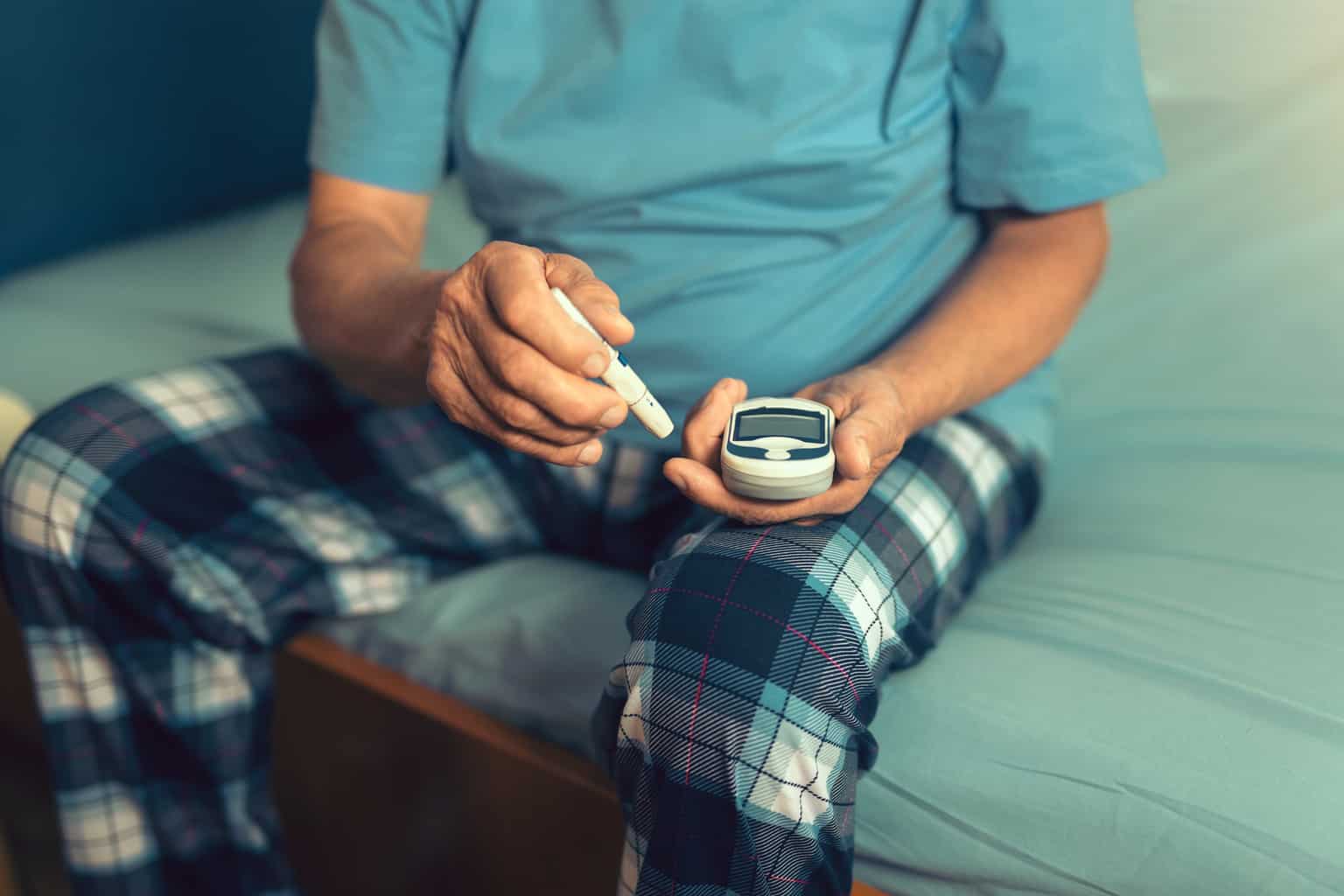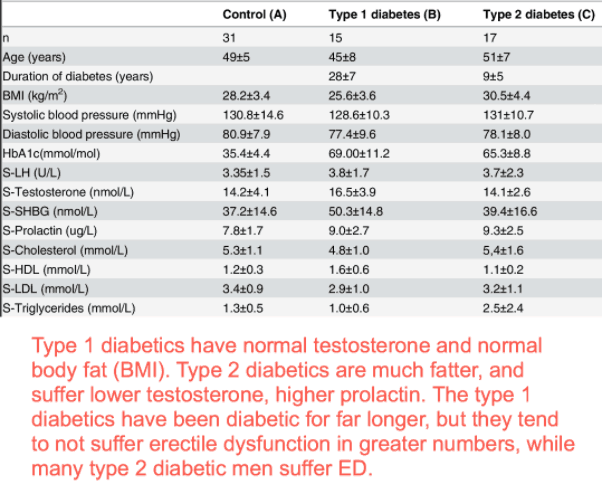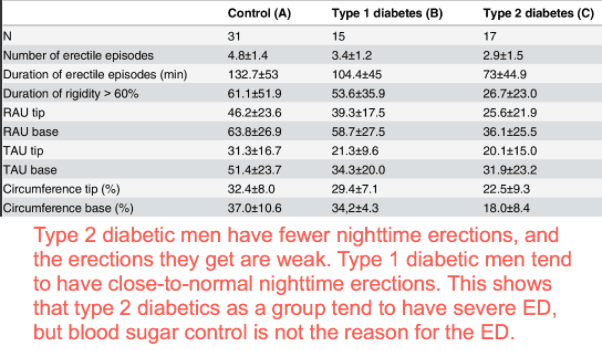
[cmamad id=”13253″ align=”center” tabid=”display-desktop” mobid=”display-desktop” stg=””]
Once this happens – your morning hard-ons return, you don’t need to worry about blood sugar, and life becomes more colorful.
—-Important Message—-
This will pump up your sexual performance
Men are doing these simple solo activities instead of masturbation…and they are gaining huge sensitivity and getting back the great erections that give them confidence with women…
These new solo activities help boost your sexual stamina and prowess quickly and in the privacy of your own home. And they are pleasurable – you’ll enjoy doing them…
And one of the most exciting benefits of these solo activities is that they work for any adult man who’s looking for a quick, easy way to add more excitement, pleasure, and satisfaction to his sex life…

———–
Improve penile response
Most men become either diabetic or prediabetic as they get a little older…
There are some profound discoveries about blood sugar and penile performance that you need to know about…
Just to explain, Type 1 diabetes (AKA juvenile diabetes) is a complete destruction of the beta cells in the pancreas.
Without the beta cells, a Type 1 diabetic must take insulin.
There is basically no known way to reestablish beta cells, so a Type 1 diabetic must take insulin for the rest of their life.
[cmamad id=”13254″ align=”center” tabid=”display-desktop” mobid=”display-desktop” stg=””]
Type 2 diabetes is completely different.
In the early stages, the pancreatic beta cells are just fine.
But the Type 2 diabetic isn’t responding to insulin. Insulin is being produced, but the cells aren’t listening to it.
As Type 2 diabetes progresses, the body produces more and more insulin.
Eventually, perhaps from being overstressed, the beta cells give out.
At that point, a Type 2 diabetic must take insulin because his body is no longer producing enough insulin on its own.
There are usually many years between the inception of Type 2 diabetes (when insulin is being produced perfectly well)…
…and the later stages of Type 2 diabetes (when insulin is no longer being produced).
I believe this situation is quite reversible for a Type 2 diabetic.
If men can fix the problems that underlie their Type 2 diabetes (even if they currently need insulin), they may be able to wean themselves off insulin.
Now that we’ve established that, let’s look at this study which shows the difference between Type 1 and Type 2 diabetes.
And it especially demonstrates the reasons for erection problems in diabetics:

This study looked at almost 400 patients over a period of about 14 years.
Some subjects were Type 1 diabetics, some were Type 2 diabetics, and the control group was made up of similar men without diabetes.

As you can see on the chart, Type 2 diabetic men are the ones suffering from erection problems and low testosterone – even though they haven’t had diabetes nearly as long as the Type 1 diabetics.
In the study, the researchers attached a device which measures hard-ons during sleep or at any other time – it’s called a rigidity scan.
Here is what they found:

Men with Type 2 diabetes had far worse erections…
Fewer of them, not as full, or just really crummy.
On the other hand, Type 1 diabetics didn’t have the same penile ability as men without diabetes, but they weren’t all that bad either.
And this had nothing to do with A1c levels or blood sugar control or testosterone levels.
Because these levels were similar across all the groups of subjects.
Here’s what the researchers in this study had to say – and it’s very important:
“A common belief among both physicians and the public is that diabetes is a common cause of erectile dysfunction. The results in our study challenge this belief in patients with Type 1 diabetes.”
It should be clear from this that a Type 2 diabetic needs to do more than just control his blood sugar if he is going to fix his diabetes and his erection problem.
Just taking the usual chemicals to control blood sugar (while making Big Pharma richer) isn’t going to help with the onset and progress of diabetes.
If a Type 2 diabetic is on insulin, it indicates that he is progressing along the diabetic pathway and is getting worse and worse.
It still may be reversible. And the erectile difficulties may still be fixable.
In fact, I have found that men can have extraordinary sex even if they have Type 2 diabetes…
—–Important Message—–
A new way to handle diabetes – male sexual performance problems VANISH…
My grandpa told me he could perform with a woman even at age 94.
But today, men often report complete inability to perform when they have diabetes. And they are a lot younger than Grandpa.
Why can’t men with diabetes perform today?
Maybe it’s because of what their doctors tell them to take.
These various “treatments” and “therapies” from giant pharmaceutical corporations cause sexual problems and they make it difficult to get hard and stay hard.
It’s not diabetes that is the problem; it’s the treatment that is the problem.
But what if there is a better way to stop or even reverse diabetes symptoms?
What if men could get their sexual function back, while conquering diabetes symptoms, all without costly and harmful treatments?

————–

http://journals.plos.org/plosone/article?id=10.1371/journal.pone.0133121
https://www.healthline.com/health/glucose-test-blood#results
https://www.nhs.uk/conditions/type-1-diabetes/symptoms/
Diabetes is one of the most challenging epidemics of our modern lifestyle.A diabetes test usually involves testing or analyzing a body’s affliction with different forms of diabetes namely, Type 1 diabetes, Type 2 diabetes or gestational diabetes. The blood glucose levels rises when a person has diabetes because of the over production of insulin ( the hormone which controls the level of sugar in blood ) or when the insulin produced does not work properly.Children and Teenagers usually suffer from Type1 diabetes, where their bodies does not produce enough insulin. This is a chronic condition which requires long term treatment while Type 2 Diabetes is a condition that afflicts overweight and obese adults. This happens when the insulin that the body naturally produces, does not work properly. The form of Diabetes that is gestational is caused for a short period of time during pregnancy which usually goes away after birth. Diabetes is also caused due to an overactive thyroid, pancreatic inflammation and also from severe stress to the body due to illness or trauma.The diabetic test involves blood glucose tests which are either fasting based or random. It is important to share with the doctor if there are any medications one is taking ,since that may affect the blood glucose levels of the body. During this test a sample of one’s blood is taken from the body through a needle and is tested for diabetes or any other related health issues.According to scientific sources ,in a fasting test the normal blood sugar is expected to be between 70 – 100 mg/dl.The random blood glucose test is under 125mg/dl. In a fasting glucose test, the blood glucose levels that is more than 126 mg/dl is termed to have diabetes. In a random glucose test, the blood glucose that is more than 200 mg/dl indicates that one has diabetes.
2. What are common type 1 diabetes symptoms?
The Diabetes symptoms show up in different forms for different people. But there is a common set of indicators which can denote the presence of Type 1 diabetes in an Individual.Increased thirst is a symptom which affects those who have diabetes. Along with the thirst, there is a increased frequency to urinate which is more than usual ,which especially increases during the nighttime. Usually healthy people may face a sudden loss in weight and increased fatigue and loss of muscle bulk. Wounds take time to heal and one can also face problems with the vision which is caused by the lens of the eye changing shape. In extreme cases there maybe vomiting and deep breathing problems which is also accompanies by a loss of appetite and stomach pain.The two forms of diabetes is one which is low blood glucose or Hypoglycemia and the other is Hyperglycaemia.Some of the specific symptoms of hypoglycemia is sweating and feeling confused and a extreme sense of nausea.With Hyperglycemia the insulin production is stalled,thus causing the blood sugar to increase out of control. The type of symptoms that is found in cases of Hyperglycemia is extreme thirst, a need to urinate and extreme drowsiness. Both these conditions need medical attention but Hyperglycemia is more dangerous than Hypoglycemia , because if left untreated Hyperglycemia can cause a serious condition where the body breaks down fat and muscles which can cause dehydration and sometimes, death.

Leave a Reply